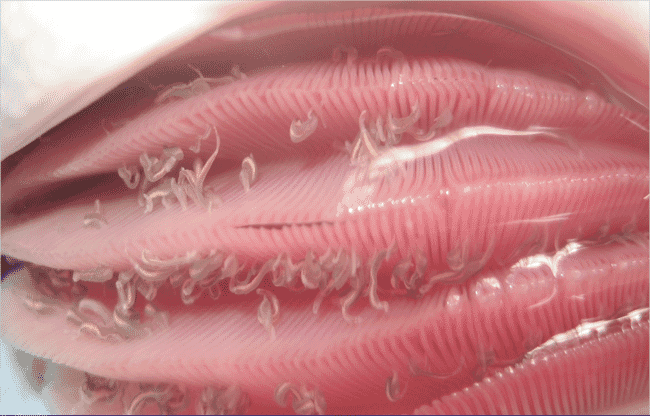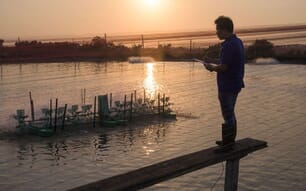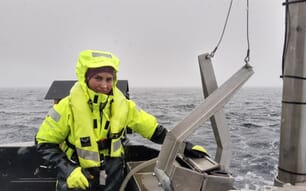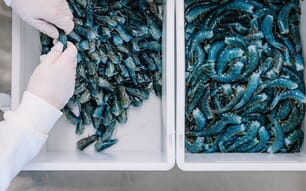Called ‘BeNeZe’ (pronounced “Ben-easy”), it is named after three important ectoparasites: skin flukes, Benedenia seriolae and Neobenedenia girellae, and gill fluke, Zeuxapta seriolae which impact Seriola aquaculture. The free tool is available through the BeNeZe website and is mobile-compatible.

© Cawthron Institute
Research leader Dr Kate Hutson says parasites are a persistent problem in kingfish aquaculture globally and can be challenging for new aquaculture businesses.
“Kingfish are susceptible to several ectoparasites, and left untreated, numbers can build quickly on fish in aquaculture farms and compromise their health,” Dr Hutson said in a press release.
"New Zealand is investing significant effort into scoping the establishment of a kingfish aquaculture industry, and Cawthron has aquatic animal health expertise and science capability that can support this potential expansion.
"The team of researchers I worked with on this tool are thrilled to see BeNeZe out there and available to support existing Seriola aquaculture operations worldwide."
BeNeZe works on the basis that temperature influences how quickly the number of flukes can build. Parasite populations don’t build as quickly in cooler waters compared with warmer water, so it’s important that treatment regimes factor in local sea surface temperature (SST).
Using the BeNeZe tool, farmers can select the parasites they have identified on the farm (using helpful identification guides on the BeNeZe website if required) and enter the current SST.
BeNeZe works by crunching life-cycle data for each parasite and sets a timed treatment regime which breaks the parasites’ life cycle.
"Using the tool is really easy and the process for treating fish is set out in six simple steps," Dr Hutson says.
"BeNeZe also helps with identification of the correct parasite as they can look quite similar to one another to an untrained eye."
Ultimately, Dr Hutson hopes the BeNeZe tool, combined with a disease surveillance plan, can help prevent and treat parasite outbreaks in Seriola aquaculture.
"There are lots of complex and tricky challenges to solve in aquaculture but knowing how different factors interact can help achieve best management practice.
“BeNeZe is supported by years of research and development and is presented on a straightforward platform to make the decision management process easy," she concludes.



